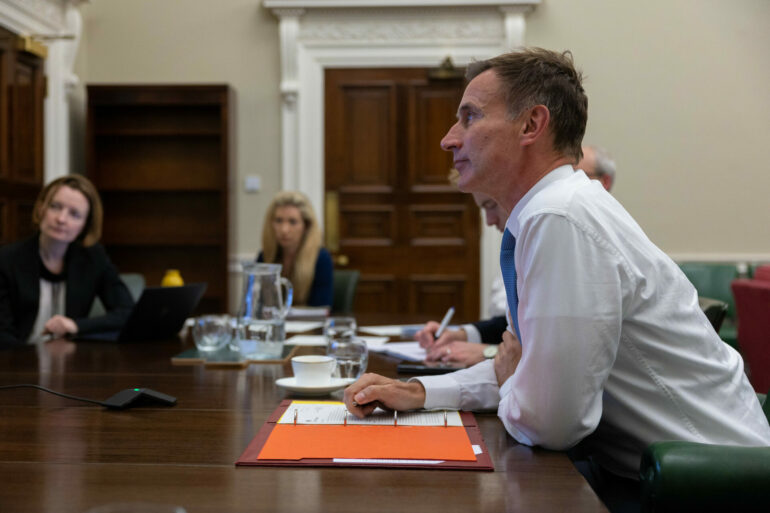The Treasury has announced 6th March as the date for the Spring Budget.
The Chancellor, Jeremy Hunt, has commissioned the Office for Budget Responsibility to prepare an economic and fiscal forecast.
What we are likely to expect from the Spring Budget
- Inheritance tax reform
- Fresh help for first-time buyers
- Income tax cut
- Fuel duty cut
What we would like to see
- Lifetime ISA reform
- A bigger ISA allowance
- Dividend tax and capital gains tax threshold cuts halted
While reams of discarded festive paper are heading for the recycling bins, Jeremy Hunt will be preparing to wrap up his own pre-election giveaways in the Spring Budget.
The date has been set for March 6th, an earlier date in the month than usual – and that’s fuelling speculation that a General Election could come as soon as May.
Although the latest snapshot of the public finances showed that government borrowing was higher than expected in November, it’s unlikely to stop the Chancellor pulling a colony of rabbits from his hat.
The trend of bumper tax receipts continued during the month, and although debt interest payments jumped again, it’s now expected that interest rates will be lower next year than previously forecast due to the struggling economy.
So, the Chancellor for now is set to seize on this window of wiggle room to bestow some sweeteners, designed to shore up conservative support and tempt floating voters.
What we are likely to expect from the Spring Budget
Inheritance tax
Inheritance tax cuts now look set to be firmly back on the table, with reports now suggesting the charge could be axed. This will again draw criticism that this will favour those who are better off at a time when people continue to struggle through the cost-of-living crisis. However, it is certainly a tax in need of reform, and it is highly likely to be targeted for upheaval in March.
Nil rate bands and gifting thresholds have remained untouched for years. At the same time, there’s been a rapid growth in house prices which has meant that many people who may not have expected to be liable for IHT now are. This year, we’re expected to pay £7.6bn in IHT, but with the same thresholds and rate in place, by the end of the 2028/29 tax year, it’s forecast to be £9.8bn.
While the Government is mulling axing the duty, it’s worth bearing in mind that even increasing nil rate bands and revisiting gifting allowances would play a major part in freeing many caught in the tax net and would enable more people to pass money down the generations, supporting their family members when they need it most.
Help for first-time buyers
With more and more younger buyers being priced out of the market, as borrowing costs have soared and house prices have remained high, the number of first-time mortgages is set to hit a ten-year low next year. It’s little surprise that help for those people who are unable to get onto the first rung of the housing ladder is reported to be on the government’s wish list.
New offers for prospective homebuyers will be aimed at boosting Conservative support among younger voters.
A new version of the Help to Buy scheme may be resurrected or efforts made to enable more potential buyers to access long-term mortgages with low deposits, similar to initiatives in the US.
Susannah Streeter is head of money and markets at Hargreaves Lansdown




